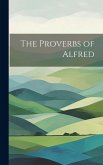Enoch Arnold Bennett (27 May 1867 - 27 March 1931) was an English author, best known as a novelist. He was a prolific writer: between the start of his career in 1898 and his death he completed 34 novels, seven volumes of short stories, 13 plays (some in collaboration with other writers), and a daily journal of more than a million words. He wrote articles and stories for more than 100 different newspapers and periodicals, worked in, and briefly ran, the Ministry of Information in the First World War, and wrote for the cinema in the 1920s. Bennett is best known for his novels and short stories, many of which are set in a fictionalised version of the Potteries, which he called The Five Towns.








